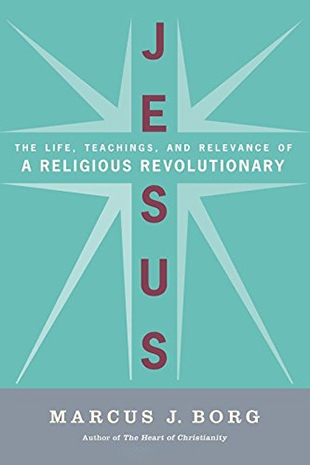There is no shortage of discussion and disagreement about the life, work, and relevance of Jesus in America, states Biblical scholar Marcus Borg in this brilliantly written revision of his 1987 study Jesus: A New Vision. Put another way, "our culture wars are to a considerable extent Jesus wars." The traditional view of Jesus as a substitutionary sacrifice leads to a vision of the Christian life as mired down in sin, guilt, and the need for forgiveness. The walking wounded from this emphasis are legion.
Borg takes a long and edifying look at the Gospels, the primary sources for what we know about Jesus. He notes that they are a combination of memory and testimony and use metaphoric language. The pre-Easter Jesus and the post-Easter Jesus are very different from each other.
In a chapter on "The Shaping of Jesus," Borg presents an overview of how Jewish tradition, where God was the central reality, collided with the ways of world dominated by imperial Rome. The pre-Easter Jesus was a Jewish mystic, a healer and exorcist, a wisdom teacher, a prophet, and a movement initiator.
In three bold chapters on God, Wisdom, and Resistance, Borg spells out the "way" of Jesus before he was executed by Rome and vindicated by God. He concludes:
"To take Jesus seriously is to follow him. To follow him is to participate in his passion. And his passion was God and the kingdom of God. The way of the cross leads to a life in God and participation in the passion of God known in Jesus."
In the epilogue, Borg points to some encouraging signs of hope within evangelical Christianity and within the mainline denominations. They signal an emphasis on practice and transformation over faith and certainty. With this volume and his many other pioneering efforts, Borg has made a huge and trailblazing contribution to the ongoing and unstoppable conversation about Jesus and the "way."
